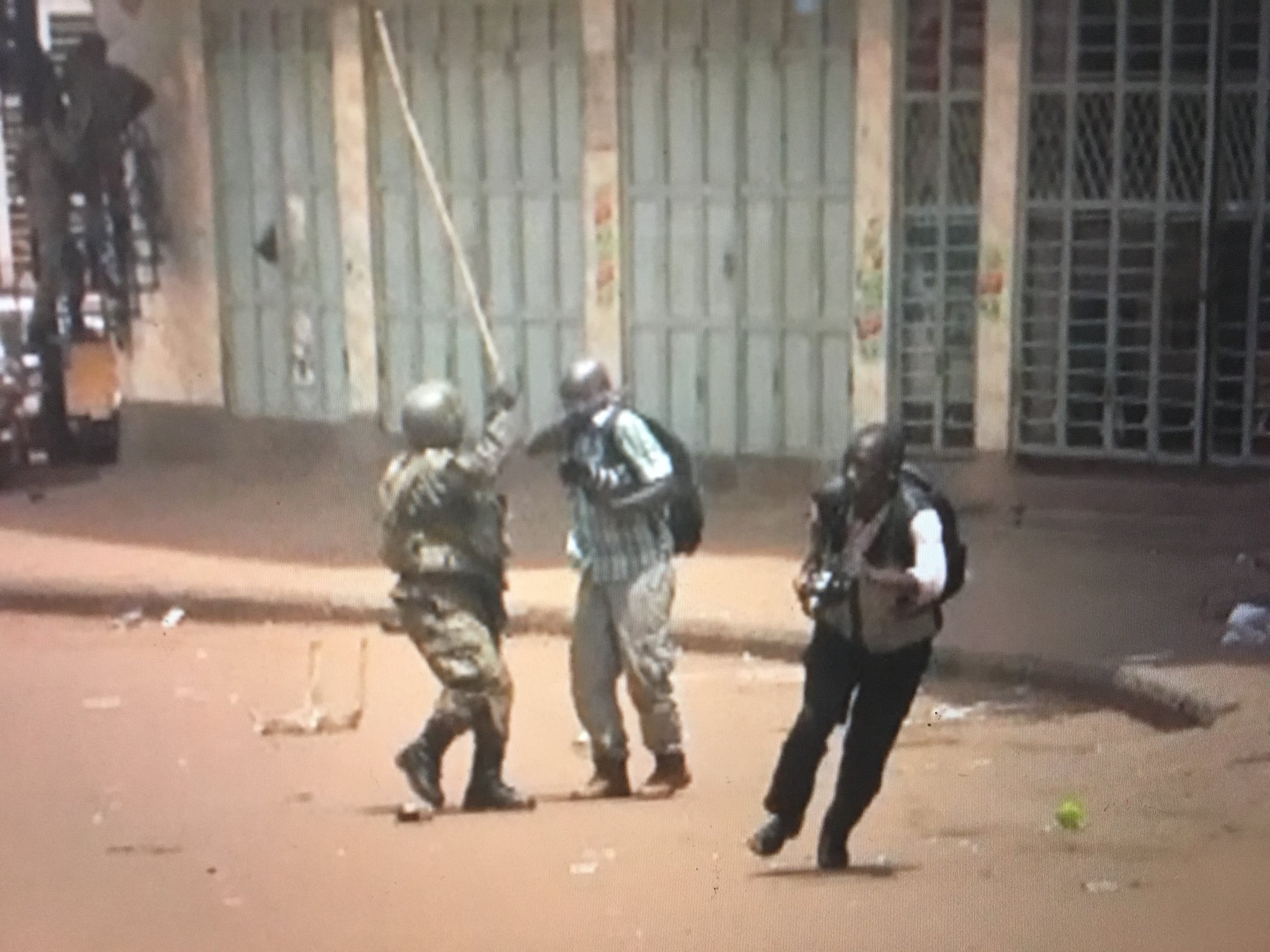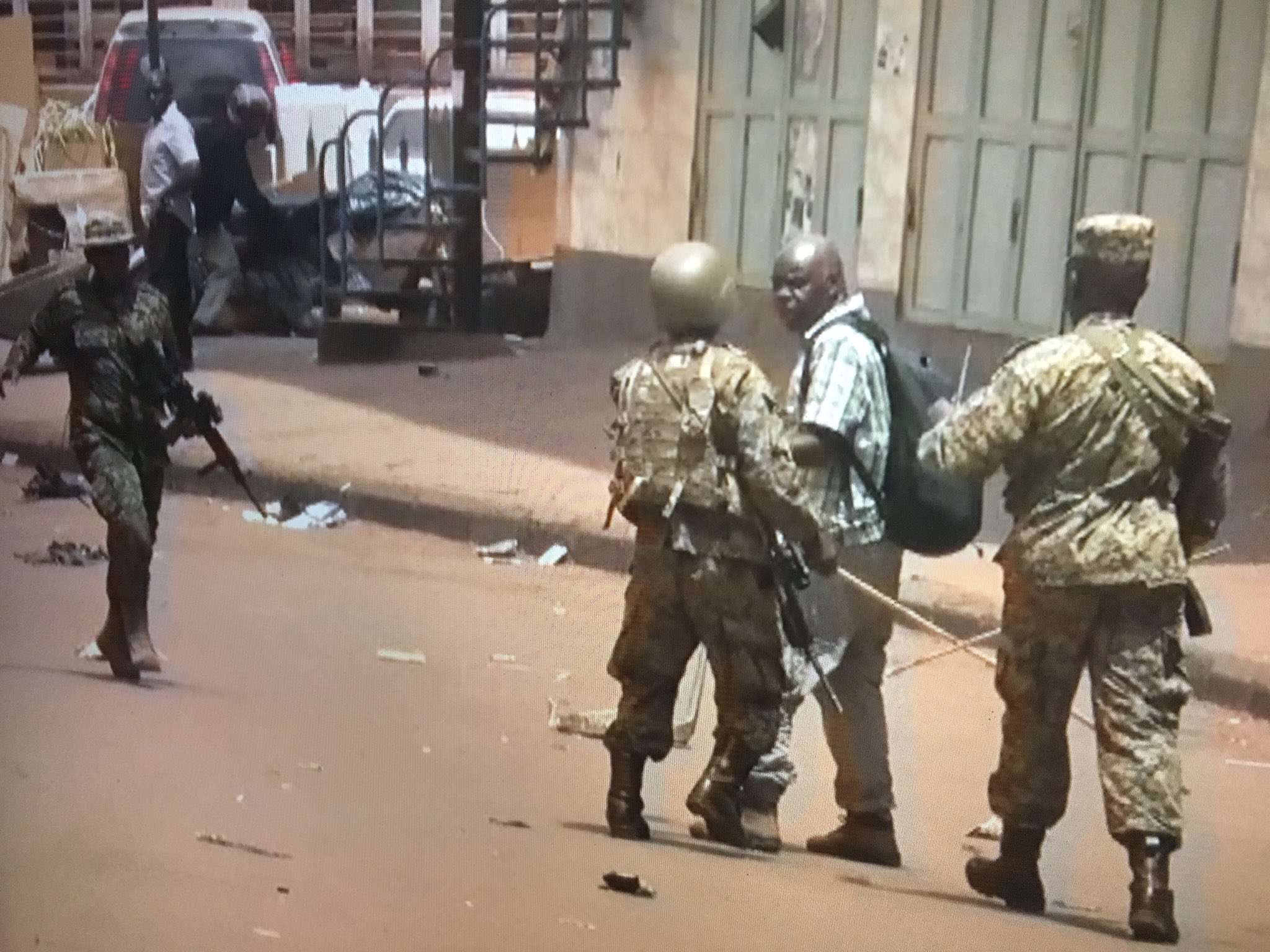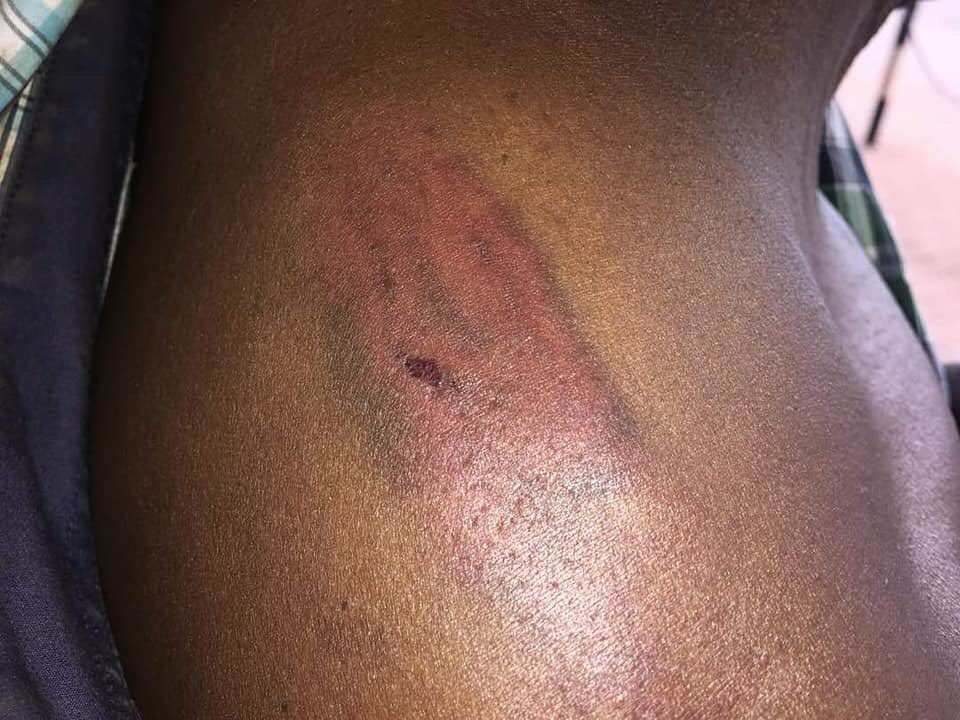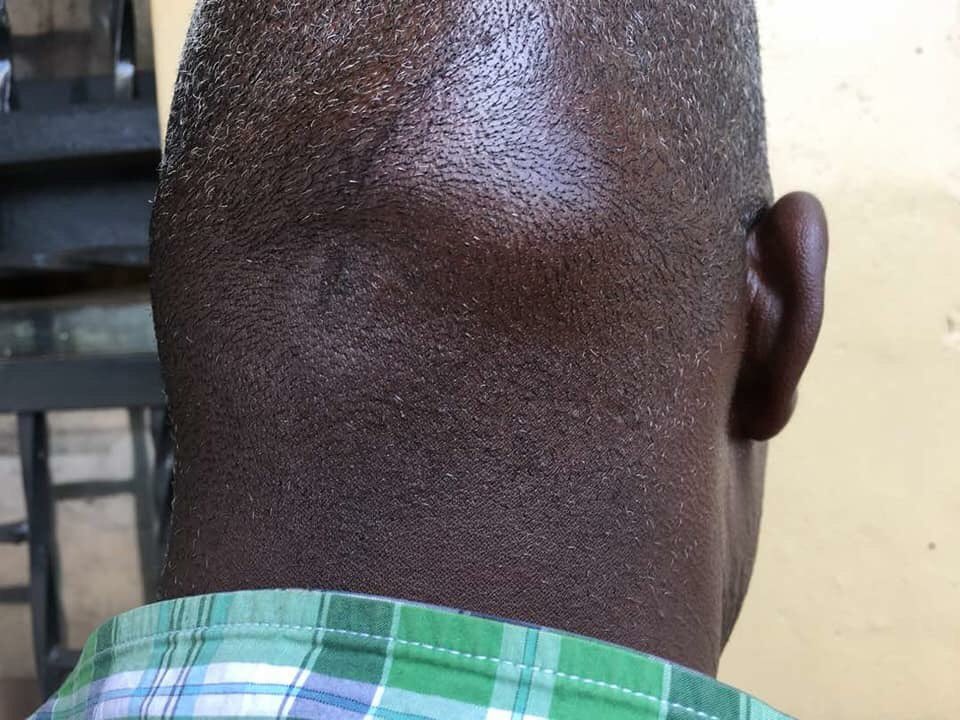ACME, an organization that champions media excellence in Africa has condemned the gross brutality by security forces towards journalists in Uganda saying it denies the public the right to access information.
Africa Centre for Media Excellence (ACME) said such wanton abuse of rights and targeting of journalists is unacceptable.
It follows the beating and arrest of at least four journalists in Kampala by the military while the reporters covered the protests that broke out in downtown Kampala on Monday, August 20.
James Akena, a photographer working for the foreign news agency, Reuters, was beaten by soldiers, arrested and detained for several hours. His equipment was confiscated.
During the same protests, two NTV journalists; Ronald Galiwango and Juma Kirya as well as The Observer’s photographer, Alfred Ochwo were also beaten or roughed up.

They were forced to delete footage from their cameras and phones of soldiers responding to or beating protesters.
“Clearly, the security forces that have responded to protesters in the last week want to carry out their wanton abuse of the rights of Ugandans in darkness,” said Dr Peter Mwesige, ACME’s Executive Director.
“They don’t want any witnesses to their high crimes. That’s why journalists have been targeted deliberately,” he added.
ACME said such violations are “unacceptable”.
The organization is urging government to rein in members of the armed forces “who are now presiding over this frightening erosion of press freedom and free expression in Uganda”.
ACME says that press freedom and freedom of expression are not just about the rights of journalists and the media to receive and disseminate information, but “are equally importantly about the right of the public to receive and impart information without which, as our Supreme Court has continued to remind us, citizens can’t meaningfully participate in their own governance”.
“Stopping journalists from covering political protests and violence denies citizens access to information about what is going on in their country, including precautions they could take, such as roads or hot spots to avoid, when violence breaks out,” Dr Mwesige said.
“No degree of imperfections in our media ranks can justify the wanton abuse that security forces have visited on journalists in the last week”.
Akena later posted on his Facebook photos of him with a swelling at the back of his head, a bruised arm, and a bandaged hand. He said he was in total pain and that he required a CT-scan for his head injuries.
Monday’s events came exactly a week after journalists were arrested and assaulted by security personnel as they covered the happenings in Arua district on the last day of electoral campaigns.
While responding to the arrest of news reporters, Police spokesperson, SSP Emilian Kayima faulted journalists who he said are agents of fueling violence by posting exaggerations on social media.
“We ask you journalists – your duty is to report what you see but you have to do it responsibly. Do not add insult to injury as some do. You tweet, and you know you are telling a lie but you still go unchecked,” Kayima told reporters on Monday afternoon.
Despite these threats, ACME has urged journalists in Uganda to stay the course and speak truth to power and to maintain accuracy, truth, independence and balance in their reporting.











